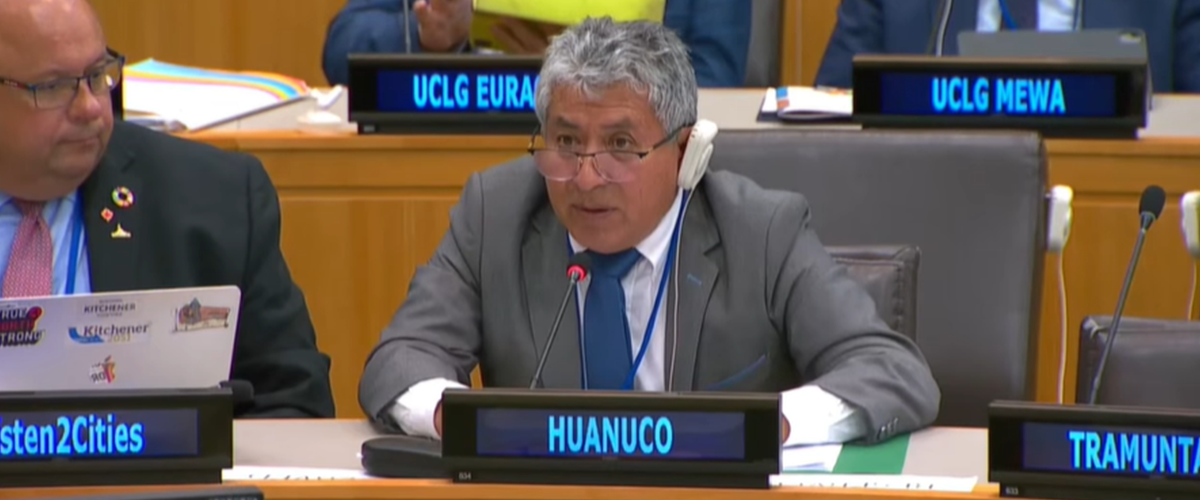Regions’ Commitment to the 2030 Agenda at HLPF

On 16 July 2025, within the framework of the United Nations High-Level Political Forum on Sustainable Development (HLPF), the Local and Regional Governments Forum (LRGF) was held, where representatives from every continent emphatically underscored the essential role of regions and municipalities in implementing the SDGs. With just five years to go until the 2030 Agenda deadline—and many targets still far from being met—it was stressed that local and regional governments must be central actors in any transformation strategy. Under the banner “A Networked Multilateralism for Present and Future Generations,” the gathering highlighted that necessary changes must be deeply rooted in territories.
In this context, ORU Fogar was represented by delegations from Africa, Europe, and the Americas, all of which took an active part in the forum’s various sessions. Two interventions stood out as reflections of global regionalism’s commitment. Abdoulaye Kaba Diakité, President of the Regional Council of Koulikoro and Vice-President of the Association of Regions of Mali, delivered a powerful address on behalf of his country’s regional governments and the African continent. He emphasized that, despite persistent challenges of insecurity, climate vulnerability, and demographic pressure, Malian regions carried out over 8,000 investment projects between 2016 and 2022. Diakité reaffirmed that regional governments are pivotal in ensuring equitable access to basic services and in promoting resilience and peace. He also called on the international community to support African regions’ efforts, especially in fragile contexts.
From Latin America, Antonio Pulgar, Governor of Huánuco and Secretary General of the National Assembly of Regional Governments of Peru (ANGR), spoke. True to ORU Fogar’s usual line, he argued for a systemic, multi-actor, and multi-level territorial approach to development—one capable of generating the trust needed for a global transformation built from each regional context. Above all, he advocated for decisive decentralization processes: “We need autonomy to plan, budget, and implement our public policies.” He insisted that international cooperation must recognize and strengthen Southern regional governments as key agents in achieving the SDGs, and he made a strong appeal to boost decentralized cooperation as an effective means to link local solutions with global agendas.
The Forum concluded with a clear consensus: territories are where the SDGs become reality. Local and regional governments, organized in networks such as ORU Fogar, will continue to champion their role in global governance by driving inclusive, resilient, and sustainable solutions for present and future generations. Testimonies from Koulikoro and Huánuco prove that the 2030 Agenda can only be fulfilled through a firm commitment to territories.










































































